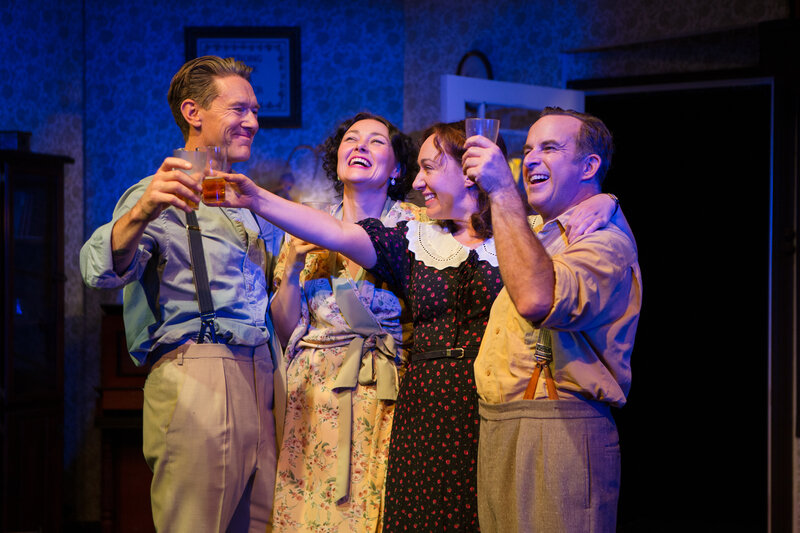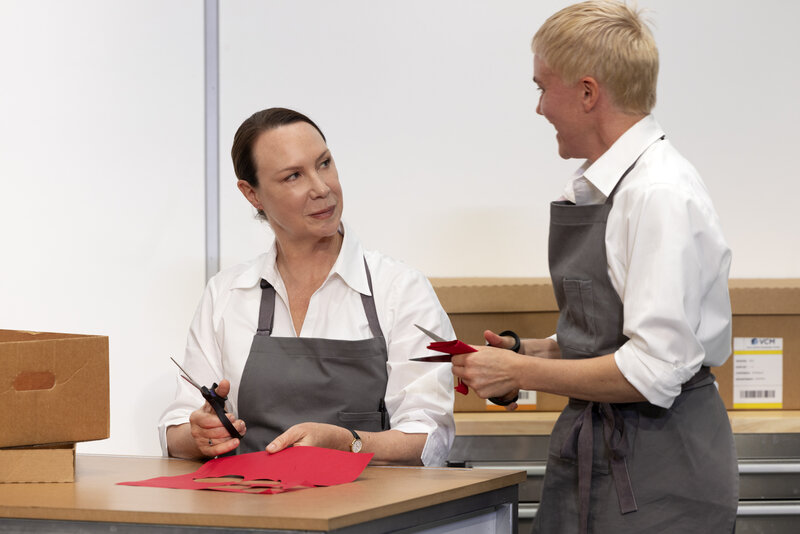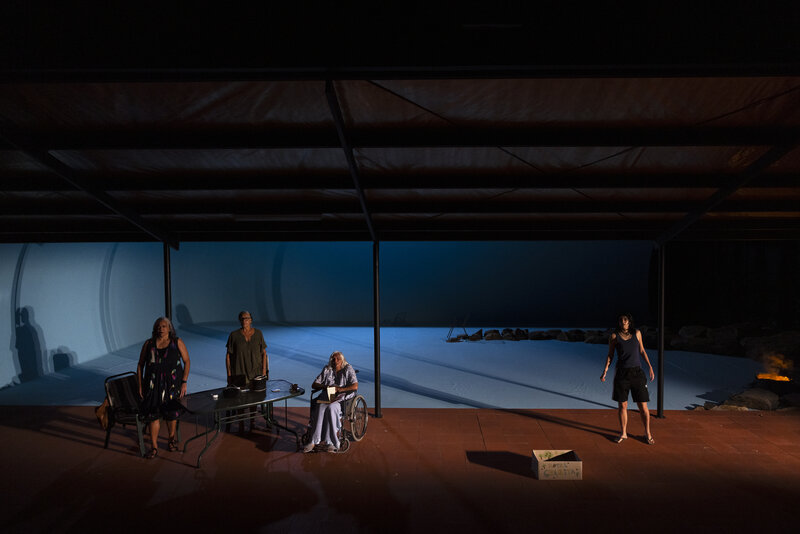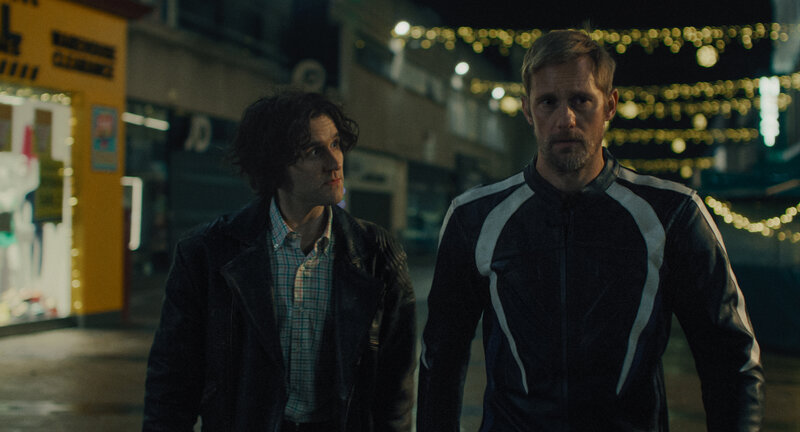In this compelling journey to seek the truth about a most heinous crime, a priest expresses a range of emotions and behavioural traits: anger, angst, mercy and retribution. Catherine McClements (Rush) is joined on stage by Johnny Carr (What Rhymes With Cars and Girls), musical director and pianist Luke Byrne, and an evocative set of singing voices in The Events. At stake is a search for compassion, peace and understanding in the wake of unthinkable violence.
 Claire (McClements) is a progressive Anglican priest who divides her time between her female partner and her church, where she leads a choir consisting of some of her community’s most vulnerable. As this diverse group of locals come together to share their love of music, their unity is shattered through the violent act of one, alienated, gun-toting teenager consumed by thoughts of cultural purity. When Claire survives a massacre she sets out on a quest to answer the pivotal question – why? How far can forgiveness stretch in the face of evil; how can people live together knowing that it can all come apart in an instant?
Claire (McClements) is a progressive Anglican priest who divides her time between her female partner and her church, where she leads a choir consisting of some of her community’s most vulnerable. As this diverse group of locals come together to share their love of music, their unity is shattered through the violent act of one, alienated, gun-toting teenager consumed by thoughts of cultural purity. When Claire survives a massacre she sets out on a quest to answer the pivotal question – why? How far can forgiveness stretch in the face of evil; how can people live together knowing that it can all come apart in an instant?
Delving into faith, politics and reason, this highly creative piece showcases a different Melbourne-based community choir at each performance, combining sacred and popular works with chanting. The night I saw it they numbered 19 (10 women and nine men) and they harmonised magnificently. So, The Events tells of tragedy, obsession and our destructive desire to fathom the unfathomable.
Award-winning Scottish playwright David Greig created it in response to the bloodbath perpetrated by Anders Behring Breivik on 22nd July, 2011 at a summer camp on the Norwegian island of Utoya. In his rampage, Breivik murdered 77 people and injured 319 others, many seriously. While the narrative is hardly straightforward, the anguish of the priest is palpable throughout. Her life has been changed irrevocably by being exposed, up close and personally, to extreme violence. With only one bullet left, as the gunman, or should that be gunboy (Carr), confronted Claire and another “innocent”, he asked: “Which one do you want me to shoot?” After such an encounter, she cannot be the same person she was (she talks about the experience as one where her soul left her body and hasn’t returned).
The music Claire calls upon “her choir” to play is now far darker and they are not comfortable with it. She even confronts the architect of the atrocities in prison, having “sold” the public the story she had forgiven him. Intense, confronting (perhaps it could have been even more so) and thought provoking, some may find the lack of linear narrative challenging, but others will admire the complexity and nuance of the work, just like I did. McClements and Carr, under the direction of Clare Watson, hit it out of the park.
 The stage is relatively bare – nine simple, metal-framed chairs that have seen far better days, sometimes stacked and other times utilitarian, an urn and tea-making facilities laid out on a small wooden table, a piano and stool. Lighting is by way of 20 heavily shaded bulbs above the stage in four rows of five. Set and lighting design is by Geoff Cobham. The choir goes from taking centre stage to being positioned on three rows of wooden bleacher seats behind the protagonists – Claire and “The Boy”. The latter also represents all the characters Claire encounters, including the killer’s father, a kid he went to school with him, a journalist and a politician.
The stage is relatively bare – nine simple, metal-framed chairs that have seen far better days, sometimes stacked and other times utilitarian, an urn and tea-making facilities laid out on a small wooden table, a piano and stool. Lighting is by way of 20 heavily shaded bulbs above the stage in four rows of five. Set and lighting design is by Geoff Cobham. The choir goes from taking centre stage to being positioned on three rows of wooden bleacher seats behind the protagonists – Claire and “The Boy”. The latter also represents all the characters Claire encounters, including the killer’s father, a kid he went to school with him, a journalist and a politician.
A co-production with Belvoir and State Theatre Company of South Australia, The Events is playing at Malthouse Theatre until 10th July. It is a fine piece of artistry that tries to rationalise and deal with the aftermath of trauma laid bare.
Alex First

David Edwards is the former editor of The Blurb and a contributor on film and television




